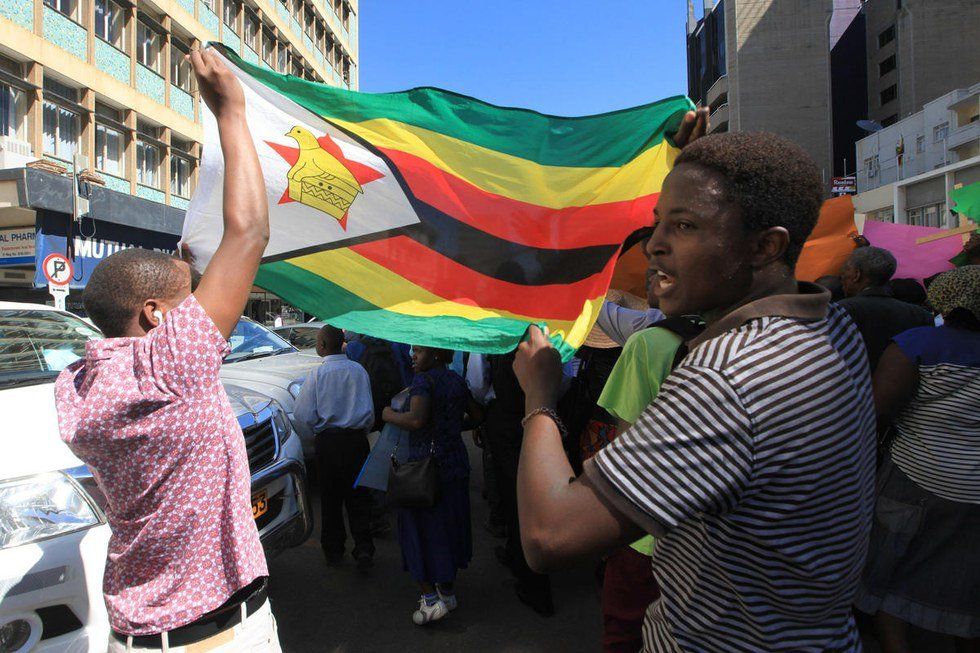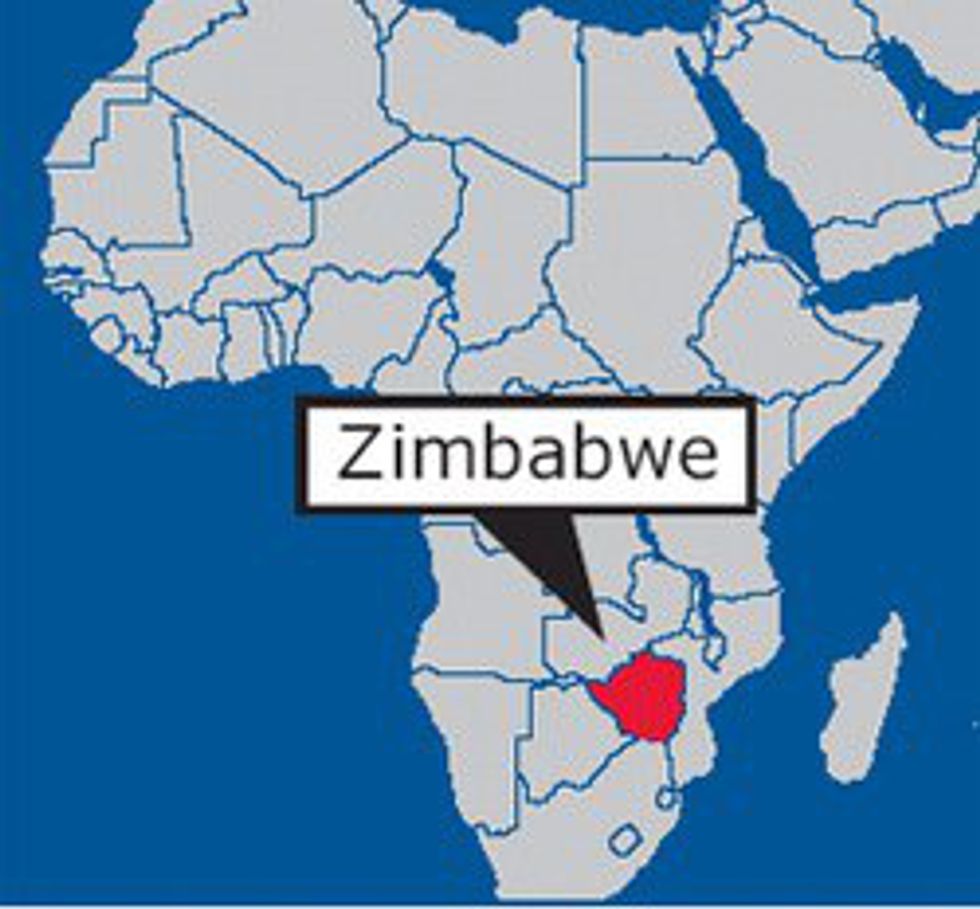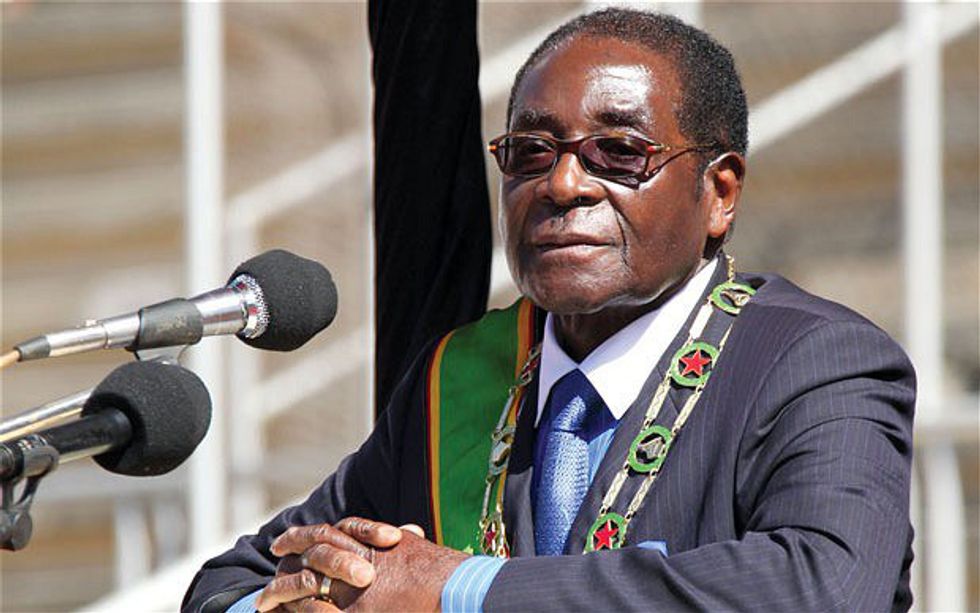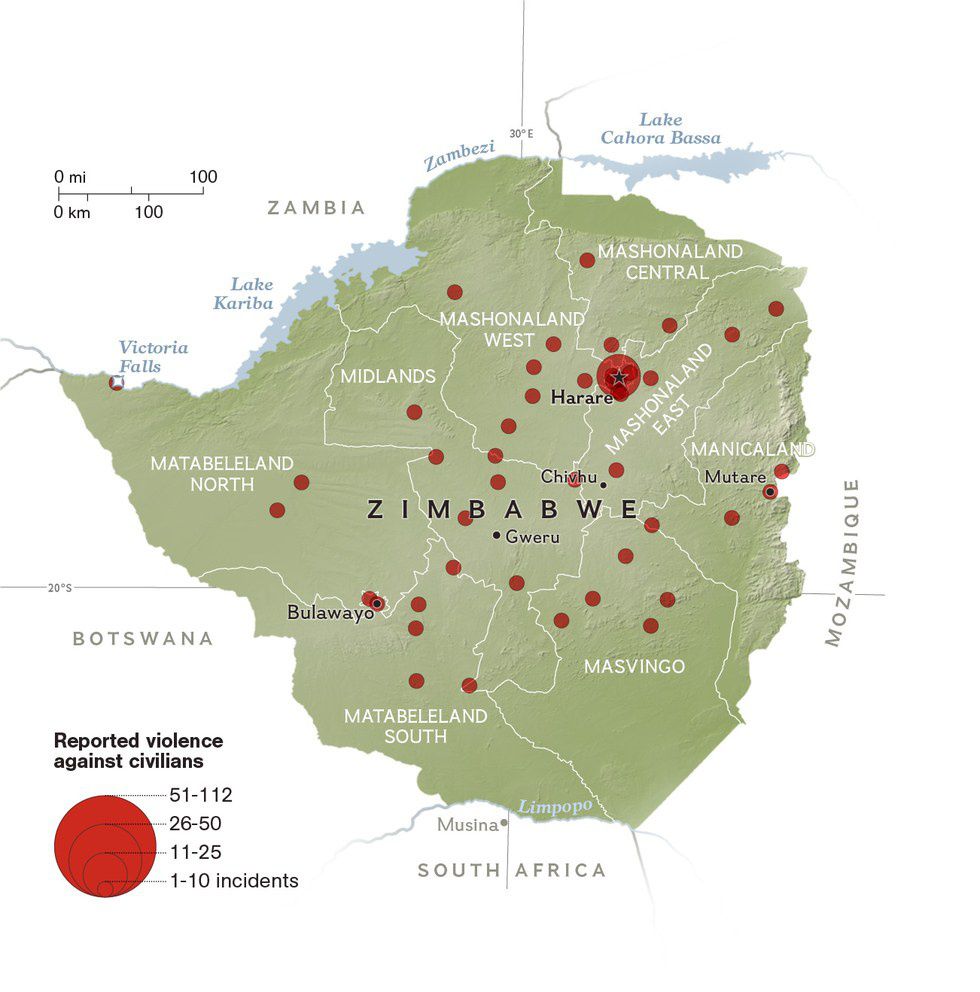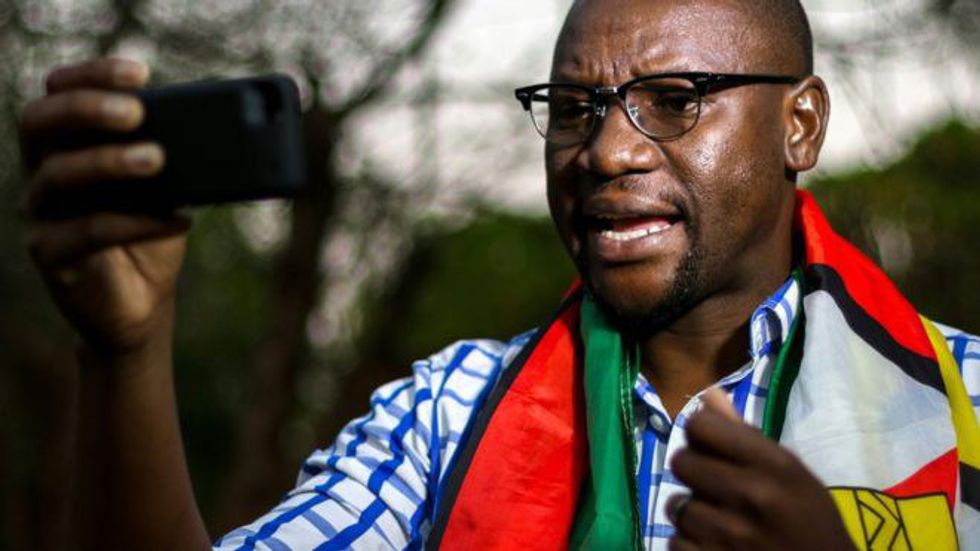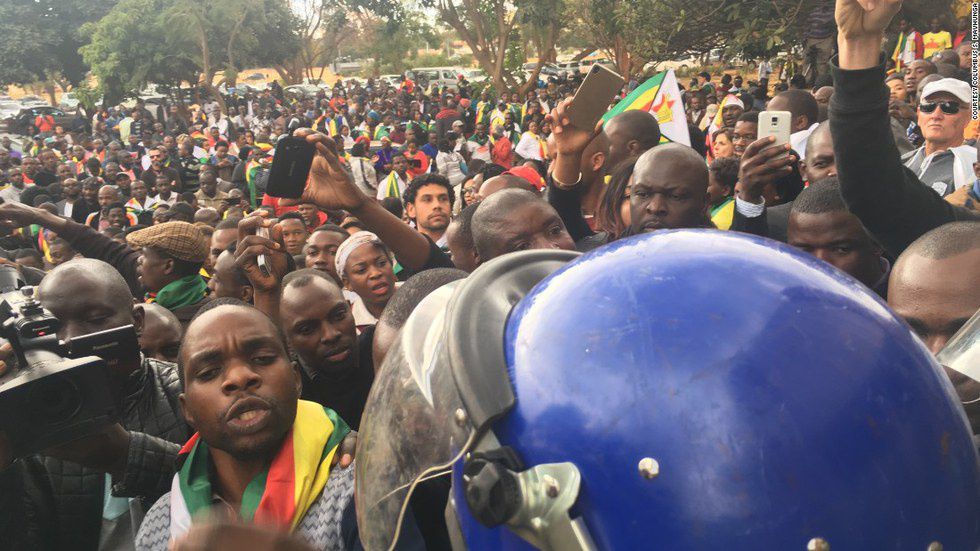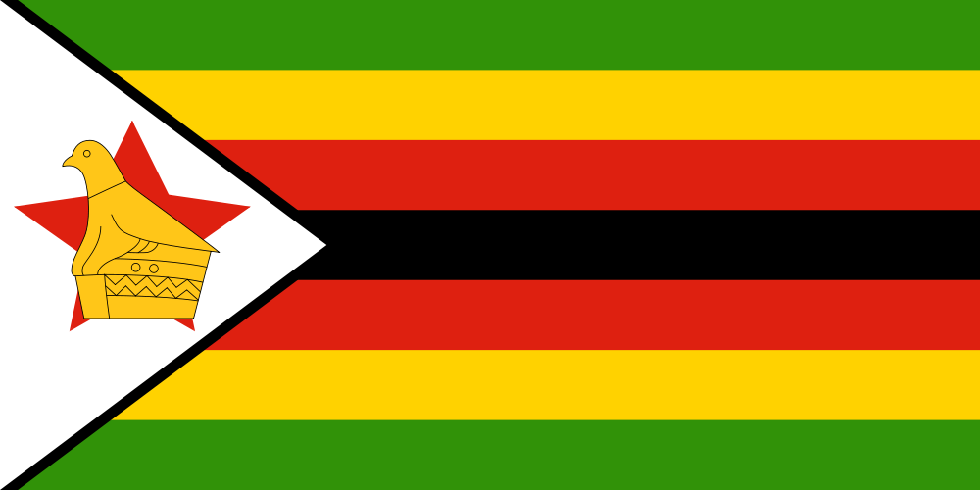Zimbabwe has seen a significant amount of really important events in the last couple months involving Robert Mugabe, Minister Evan Mawarire and the #thisflag movement. I would love to just dive right into the story, but seeing as most of the people reading this article will most likely be American college students, I should probably explain some of the basics before we tackle the heavy stuff. So, let’s start at square one.
This is Zimbabwe, a land-locked African country that was colonized by the British, who originally named the territory Southern Rhodesia. In 1965, the white people living there declared themselves independent from the Brits (though they were technically still a part of the British Empire) and named the country Rhodesia. They proceeded to form a white-dominated government, which gave the vast majority of the country’s land to the white minority, set aside prominent government positions for white people, and ensured white people got all the best jobs in the private sector. The country then faced 15 years of guerrilla warfare waged by African Nationalist groups who had the crazy idea that black people should be treated like, you know, people. This conflict ended in 1980, when the country voted for the ZANU-PF party, electing Robert Mugabe president. This was 36 years ago, and Mugabe is still president today.
So, in 1980 the territory of Rhodesia officially declared its independence from Britain, renamed itself Zimabwe, gave the land back to the African people who had lived there for hundreds of years, and essentially kicked out all the white people (this is a gross over-simplification, but for now it will have to do). At first, things seemed to be going well, but this sense of prosperity would be short-lived. Soon after Mugabe took over as President, the Zimbabwean economy began to nose-dive, human-rights violations began to appear, and the ZANU-PF began winning elections by decidedly implausible numbers. By the time the year 2000 came along, it was clear that Robert Mugabe would not be going anywhere, that the Zimbabwean economy was likely beyond repair and that the dictator-y vibes Mugabe had been putting out were not coincidental. Despite this, it is important to mention that Robert Mugabe and his government were (and to an extent still are) very popular among the people of Zimbabwe. The ZANU-PF helped a lot of black Zimbabweans reclaim the lives that had been stolen from them by the British almost one-hundred years before, and the positive impact this service had on the lives cannot be understated. Mugabe is also very clever in the way that he presents himself. He spins Zimbabwe’s economic woes as a result of Western influence (which, to be fair, is definitely a valid argument), describes himself as an immortal being who has “beaten Christ,” and has become very good at making people who are critical of his government disappear.
OK, that’s enough history for today. Now that you understand the context, let’s focus on Minister Evan Mawarire and his #thisflag movement. Before we really get into the issue at hand, however, I want to mention that this is a very complex issue that I cannot fully understand while living on a different contenent. I encourage you not to take my word at face value and to do your own reaserch into this wonderful country and the issues it faces. With that said, I present my understanding of the #thisflag movment.
All the commotion started when Minister Evan Mawarire a 39 year old, broke church minister of posted this video online last May:
https://www.youtube.com/watch?v=LubMilbHiPg
The video quickly gained steam until it became certifiably viral. The distinct mix of passion, relevance and patriotism that Mawarire puts forth in this video is truly inspiring, and it seemed to resonate with the entire country. Many, particularly young people, were using #thisflag and the video that inspired the movement to express their displeasure with the state of their government, economy, institutions and country. #thisflag quickly turned into a full-fledged social movement, with people around the country draping the Zimbabwean flag around their necks as a sign of both protest and patriotism. Mawarire called for 25 days of digital activism, organized peaceful protests and effectively spearheaded the #thisflag movement.
It probably goes without saying that the Zimbabwean government was not particularly supportive of these protests. They made efforts to cast Mawarire as a villain tearing the country apart, to criticize the protestors as faceless cowards hiding behind a screen, and to start their own counter-movement using #ourflag. Despite the efforts of a now-92 year old Mugabe and his government, #thisflag continued to gain popularity. Indeed, there were major protests organized for this past Wednesday.
The story took another turn on Tuesday the 12th, when Evan Mawarire was arrested by the Zimbabwean Police and charged with inciting violence. In Zimbabwe, protesting is legal. However, inciting violence is not. Much of Zimbabwe was outraged by this arrest, especially considering that Mawarire had actively advocated for protesters to be peaceful on more than one occasion, meaning that charges of inciting violence seemed to have no basis in reality. The Zimbabwean prosecutors must have shared this sentiment, because when Mawarire arrived in court the next day, his charges had changed from ‘inciting violence’ to ‘trying to overthrow the government,’ which carries a 20-year jail sentence if found guilty. Hundreds of Mawarire supporters gathered outside the courthouse and peacefully protested.
Many thought that Mawarire was destined to disappear into a Zimbabwean prison, never to return. However, today he is a free man. The court opted to throw out the charges against Mawarire because they had been changed overnight, which constitutes a violation.
Of course, this story is far from over, and the country of Zimbabwe has a long way to go before the change so many people were calling for can take place. With that said, what Mawarire and the #thisflag movement have succeeded in doing is proof that Robert Mugabe is a human being who can be beaten. Now, when the youth of Zimbabwe look at the Zimbabwean flag, they can see both a symbol of national pride and, perhaps, a more promising future.



